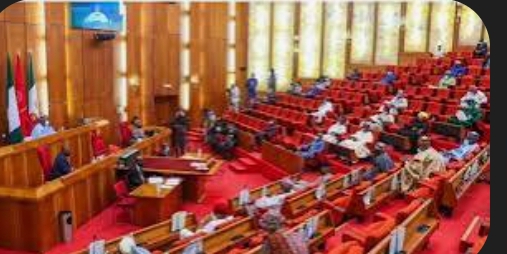In Nigeria, some things never really go out of style—ankara fabrics, pepper soup, and, well… politicians.
While most countries are investing in renewable energy, Nigeria seems to have mastered renewable leadership. Only here can a politician lose an election, retire in controversy, or serve out a scandal—and still find a soft landing in the Senate or a juicy government board appointment. It’s like political reincarnation, only with more perks and fewer consequences.
Same Faces, Different Seats
Let’s face it: Nigeria’s democracy has become a game of musical chairs, where the music never really stops, and the players are always the same. A former governor becomes a senator. A former senator becomes a minister. A former minister becomes a party chairman. And sometimes—just for flair—they rotate the titles like agbada at a family wedding.
But make no mistake, this isn’t continuity. It’s immunity in disguise.
As Nigerians watch from the sidelines, these seasoned power-players glide from one public office to another, not because they bring new ideas or fresh solutions, but because they bring influence, connections—and a deep knowledge of how to bend the system without breaking it.
If Nigeria’s political scene were Nollywood, we’d have to ask why we keep casting the same actors in every film.
The Senate: A Retirement Home with Benefits?
Rather than serving as the engine room for national reform, Nigeria’s Senate has become, for many, a comfy post-retirement lounge. With plush allowances, zero pressure to perform, and immunity from public scrutiny, it’s no wonder some politicians treat it like an exclusive old boys’ club—complete with backroom deals, cozy handshakes, and the occasional honorary title.
And what do they actually do once they get there?
Well, the real question is: what don’t they do?
They don’t pass key reforms. They don’t investigate the unexplained wealth of colleagues. They don’t protect whistleblowers. They don’t fast-track corruption cases. Because if they did, they’d be setting a trap that might just catch… themselves.
When the Whistle Blows and Nobody Moves
Senator Natasha Akpoti-Uduaghan recently broke the silence many have grown used to. She didn’t mince words. She spoke of lawmakers pressuring agencies for money and job slots in exchange for budget approvals—essentially turning oversight into a bidding war. She even described internal quotas that push committee chairs to “bring in returns”—or risk being replaced.
Now, you’d think this kind of bombshell would spark arrests, Senate hearings, or at least a strongly worded EFCC press release.
Instead, we got what Nigeria does best: silence. A deafening, calculated silence. No uproar. No probe. No public shame. Just a polite shrug and business as usual.
Imagine if such an allegation was made in Washington D.C.? In the United States, Senator Bob Menendez was stripped of his committee seat and slapped with federal charges for far less. George Santos was expelled from Congress after lying about his past and playing fast and loose with campaign funds. In other democracies, when the line is crossed, the system reacts—not retreats.
Nigeria: Where the System is Strong for the Weak, and Weak for the Strong
This isn’t about foreign comparisons for ego’s sake. It’s about what a working democracy should do when its institutions are challenged from within. In Nigeria, the law is quick to pounce on a poor trader selling on the roadside without a permit. But when a politician is accused of hoarding contract kickbacks or turning oversight into extortion, the law suddenly goes on sabbatical.
Some say the solution lies in rewriting the entire Nigerian constitution. But let’s be honest: what use is a brand-new document when those in charge of enforcing it treat it like tissue paper?
We don’t need a new rulebook. We need the guts to use the one we already have.
For Nigeria to move forward, it must stop confusing leadership with legal cover. Public office is not a hiding place from consequences. It’s a responsibility—to the people, to the truth, and to the future.
Until we start seeing corrupt lawmakers go to jail—yes, jail—not just retire with juicy pensions or reappear as party “elders,” the recycling will continue. And like a bad generator in August heat, Nigeria will keep making noise without delivering power.
The question isn’t whether change is possible. It’s whether we’re ready to stop clapping for recycled politicians and start demanding real accountability.
Because if leadership is truly about service, then it’s high time we asked our leaders one simple question: Who exactly are you serving?
Nigerians can recycle plastics, paper, even palm oil bottles. But please, let’s stop recycling failure.





